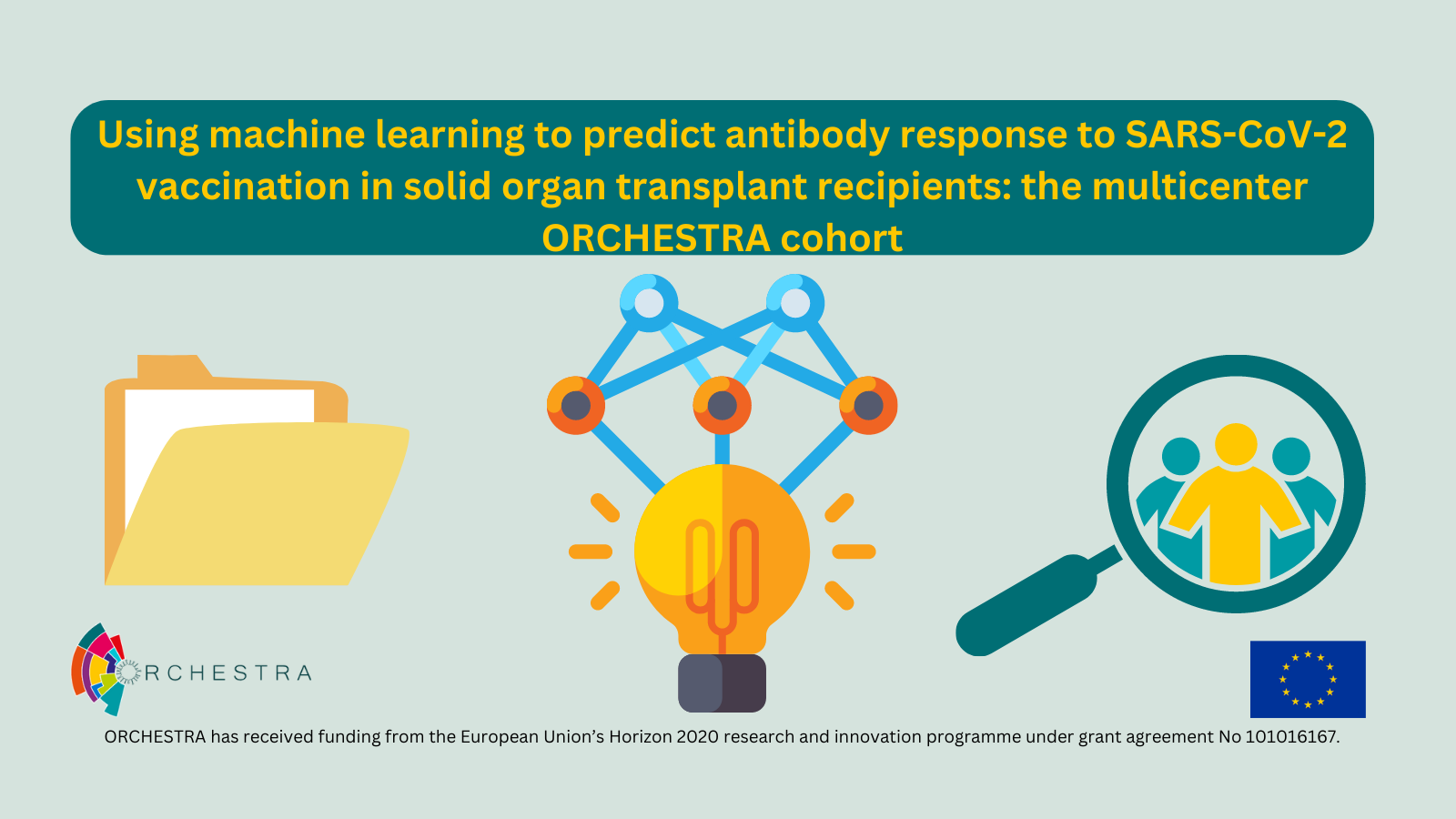“Using machine learning to predict antibody response to SARS-CoV-2 vaccination in solid organ transplant recipients: the multicenter ORCHESTRA cohort”
“Using machine learning to predict antibody response to SARS-CoV-2 vaccination in solid organ transplant recipients: the multicenter ORCHESTRA cohort”
Maddalena, what is your study about?
Prof. Giannella: In Work Package 4 we have several types of fragile patients including immunocompromised patients, children and elderly. The main focus of our wp is to assess the immunological response to sars cov2 vaccine in different types of fragile populations.
What were your major observations?
Prof. Giannella: We have observed that mainly in some types of immunocompromised group patients (i.e. solid organ transplant recipients), the immune response is lower than in general population in terms of developing an antibody response. We are also studying the cellular immunity.
What was your main research question?
Prof. Giannella: In this analysis, our question was: Can we reach a good level of protection in terms of antibody responses in solid organ transplant recipients after a booster dosage?
Can we reach a sufficient level of protection?
Prof. Giannella: Antibody response is still negative in a quarter of patients after booster dosage and even in positive cases the antibody levels are lower than in general population. We tried to create – in collaboration with WP8 – a sophisticated statistical model to predict the probability of having a low level of antibody response using clinical data (type of transplant, kind of immunosuppression…) easy to obtain.
What are your recommendations, Maddalena?
Prof. Giannella: We recommend that physicians consider that despite the use of dosage, there will be a group of patients in 2023 that will not have sufficient protection and, we have to be careful for these patients.
What was the main fing of the sudy?
We found that clinical information, even when assessed by machine learning algorithms, was not efficient in predicting negative antibody response in SOT recipients.
Thank you for the insights. We see that you have also very young team members. Our impression is that they are highly motivated. So, what are their contributions to your work?
Prof. Giannella: Their contribution was very important. Being a multicenter longitudinal study of different cohorts in several countries with a number of clinical and immunological assessments established according to local vaccination schedules its conduction is a bit complex. They all help with coordination, data collection, external and internal analysis…
Thank you, Maddalena.
###
